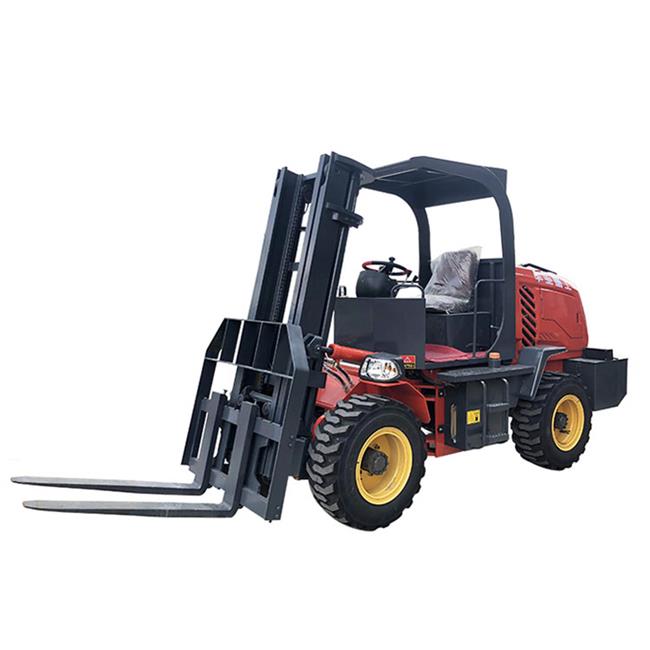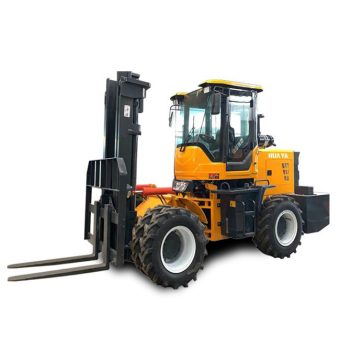
News
In the world of material handling and construction, the rough terrain forklift stands tall as a versatile and powerful machine. Whether you're navigating through challenging landscapes or lifting heavy loads in uneven terrains, this class of forklifts proves indispensable. In this guide, we'll delve into the intricacies of what makes a forklift a "rough terrain" model, its applications, and why it's a game-changer in various industries.

Rough terrain forklifts, as the name suggests, are designed to tackle environments that are anything but smooth. Unlike their indoor counterparts, these forklifts boast features that make them well-suited for outdoor tasks. Key differentiators include:
Sturdy Tires: Equipped with robust, deep-treaded tires, these forklifts gain traction on gravel, mud, and uneven surfaces.
All-Wheel Drive: The ability to power all wheels ensures optimal performance on challenging terrains, providing stability and control.
Increased Ground Clearance: Designed with higher ground clearance, rough terrain forklifts can navigate over obstacles that would impede traditional forklifts.
Rough terrain forklifts find a natural home in the construction industry. Their ability to navigate construction sites with ease, lift heavy loads, and handle rough surfaces makes them an invaluable asset.
In the agricultural sector, these forklifts prove indispensable for handling bulk materials, such as feed and equipment, in fields and barns.
Landscapers benefit from the versatility of rough terrain forklifts when moving plants, rocks, and other materials across uneven terrain.
When considering a rough terrain forklift for your operations, certain features are non-negotiable:
Load Capacity: Ensure the forklift can handle the weight of your typical loads.
Maneuverability: Opt for a model with exceptional maneuverability, especially crucial in tight spaces.
Terrain Adaptability: Look for forklifts with features like adjustable suspension and differential locks for enhanced adaptability to diverse terrains.
While they are primarily designed for outdoor use, some models can be used indoors with caution. However, their large size and aggressive tire treads may cause damage to indoor surfaces.
Regular maintenance is crucial for optimal performance. This includes checking tire pressure, inspecting hydraulic systems, and ensuring all safety features are functioning correctly.
Rough terrain forklifts are not just machines; they are game-changers in industries that demand resilience, power, and adaptability. Whether navigating construction sites, handling agricultural tasks, or enhancing landscaping projects, these forklifts prove their worth on uneven ground. Invest wisely, considering the specific needs of your operation, and unlock the true potential of rough terrain forklifts.
